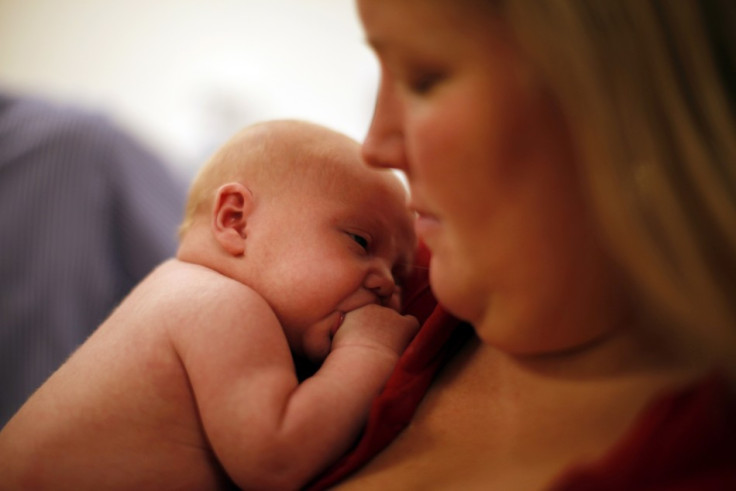Caesarean Births: 'Too Posh to Push' Could Lead to Fatter Children
Study finds link between Caesarean sections and risk of childhood obestity.

The risk of a child becoming obese may be doubled if it is born by Cesarean section, a study claims.
Researchers from Boston Children's Hospital found that babies born by the technique, which is increasingly used as an alternative to natural birth without medical need, were more likely to be overweight by age three regardless of their birth weight.
The authors of the study, published in the online journal Archives of Disease in Childhood, analysed 1,255 mother and child pairs from eight outpatient maternity services in eastern Massachusetts from 1999 to 2002.
Babies were measured at birth, six months and at the age of three. Cesarean sections were carried out for 284 births and slightly under 16 percent were found to be obese by the age of three, in contrast to just seven percent of babies delivered naturally.
The mothers who delivered by C-section were generally found to be heavier than those who were delivered naturally. The birth weight of babies delivered by C-section also tended to be higher. The babies were generally breast fed for a shorter period as well.
The researchers found that the babies became overweight irrespective of their birth weight, even when maternal weight was taken into account.
Although they could not pinpoint a definite cause for their results, they speculated that the difference in the composition of gut bacteria acquired at birth between the two delivery methods could be play an important role.
Children born by Cesarean are found to have higher amounts of Firmicutes bacteria in their body - a bacteria generally found in higher levels amongst obese people.
"Our findings suggest a need for studies examining whether the association between caesarian delivery and child obesity is mediated by the types, quantities and functional effects of intestinal microbiota established in early life," the authors said.
The increased risk of obesity could be used as worthwhile rationale to halt the increase in mothers having C-sections that are not medically required, they said, adding: "Further studies are needed to confirm our findings and to explore mechanisms underlying this association.
"Expectant mothers choosing Cesarean delivery in the absence of an obstetrical or medical indication should be aware that their children may have a higher risk of obesity."
© Copyright IBTimes 2025. All rights reserved.





















